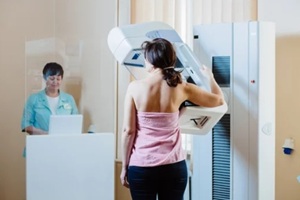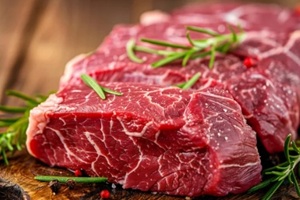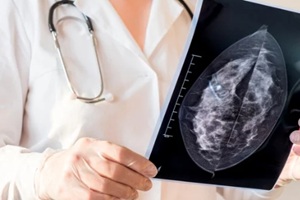 Many factors contribute to breast cancer risk, from family history to genetic predisposition. However, few people realize that the foods they eat and dietary habits they consider routine may also play a role in their mammography outcomes.
Many factors contribute to breast cancer risk, from family history to genetic predisposition. However, few people realize that the foods they eat and dietary habits they consider routine may also play a role in their mammography outcomes.
While no superfood prevents breast cancer—nor is there a single food that causes it—a person’s overarching dietary choices influence how the body’s cells grow and divide. A few small changes to your diet can go a long way toward decreasing your risk of breast cancer and enjoying better overall health.
Learn how certain foods and dietary habits can influence breast health and mammogram outcomes so you can make informed decisions about diet, health, and wellness.
Why Fat Is Tied to Cancer
A high-fat diet also tends to be higher in calories, as fat is a calorically dense substance. However, this does not necessarily mean that eating fat is a poor choice; some types of fat, such as mono- and polyunsaturated fats, are good for health and can be found in nutritious items such as avocados and salmon.
The problem with fat arises when a person consumes too many calories, building up excess fat cells in the body. A person who is overweight or obese is typically also at a higher risk of breast cancer due to how fat cells impact hormones. Fat produces estrogen, which is a foundational hormonal component of breast tissue growth.
When the cells in the breasts grow faster and more abundantly, they also replicate faster, which increases the odds that a cell will become abnormal and transition into cancer.
Switching to healthy fats in the diet and avoiding the consumption of excess calories can keep the breast tissue healthy.
The Role of Red Meat
For many years, the adage has spread that red meat is the inferior choice to white meat because red meat causes inflammation. Extensive cohort studies into breast cancer risk have found that while no difference in breast cancer risk was found between groups who ate a high amount of red meat versus a low amount, postmenopausal women did see a higher rate of breast cancer than premenopausal women when both cohorts consumed red meat.
 The cause behind this difference is unclear and could range from the cooking method to the type of animal the meat came from.
The cause behind this difference is unclear and could range from the cooking method to the type of animal the meat came from.
While the connection between red meat and breast cancer may not be entirely clear, there are still benefits to limiting its consumption. On average, white meat is lower in fat, decreasing caloric consumption.
Other essential nutrients, such as zinc and B vitamins, can be found in white meat, so there is an incentive to add more of it to the diet.
Fiber in the Diet
A diet high in fiber is good for the body for many reasons, but reducing the incidence of breast cancer is one reason people may not be aware of. There are many mechanisms behind why fiber is associated with significantly lower breast cancer rates:
- Stable blood sugar – Cancer cells need energy to grow, and excess glucose (sugar) in the blood encourages cancer proliferation. Fiber stabilizes blood sugar.
- Lower free estrogen – Fiber can help to reduce excess estrogen, which slows the proliferation of breast cells that can become cancerous.
- Decreased appetite – Fiber helps people to feel full for longer after eating, which helps to avoid calorie overconsumption. Thus, those who incorporate fiber (especially fruits and vegetables) are less likely to face increased cancer risk from obesity.
Alcohol and the Cancer Connection
Many assume that a small drink here and there does not impact their health. Still, studies show that breast cancer risk increases by 7% to 10% for each alcoholic drink an individual consumes per day.
Researchers believe that ethanol, the alcohol found in drinks, is responsible for this increase in breast cancer risk (through its function of raising estrogen in the body); thus, it is likely that the type of alcohol does not matter as much as how often and how much an individual consumes.
Get Regular Breast Cancer Screenings
 A person’s dietary choices have a role to play in their breast cancer risk, just as their genetics, family history, and other lifestyle factors do. By making minor adjustments to nutritional habits over time, an individual can boost their health in many ways and decrease their lifetime risk of breast cancer.
A person’s dietary choices have a role to play in their breast cancer risk, just as their genetics, family history, and other lifestyle factors do. By making minor adjustments to nutritional habits over time, an individual can boost their health in many ways and decrease their lifetime risk of breast cancer.
The professionals at Raleigh Gynecology and Wellness encourage all women to participate regularly in breast cancer screening through both mammography and self-exams at home.
Contact Raleigh Gynecology and Wellness to schedule your mammogram or learn more about how to keep your breasts healthy over the long term.
